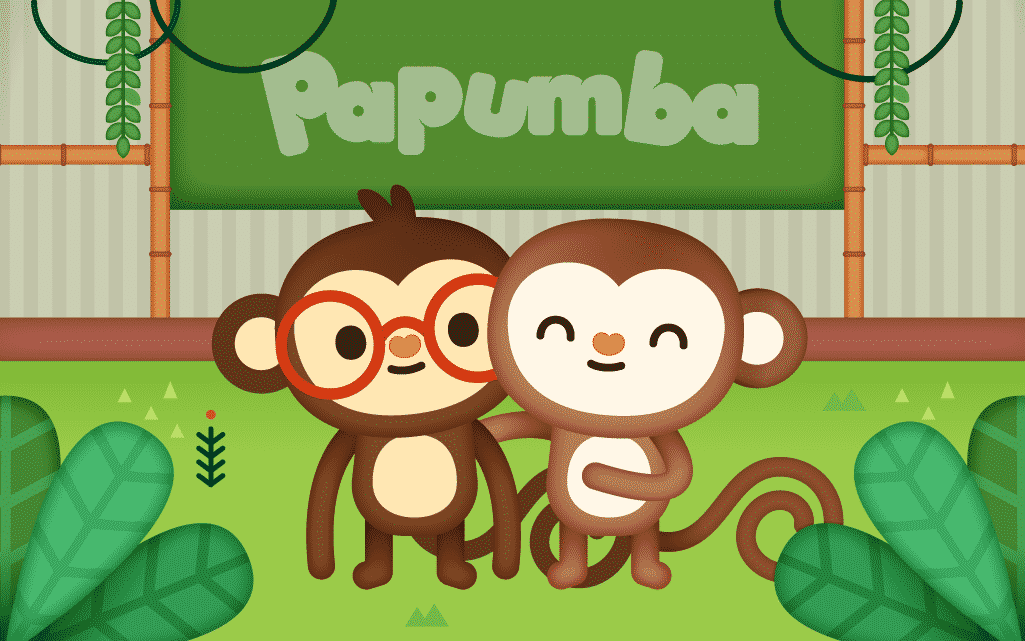
Sol de Bernardo Has A New Outlook On Education Thanks To Papumba
If there is one thing the pandemic has proven to be essential, it’s the internet. For Sol de Bernardo, head of content creation at Papumba, access to technology should be “a basic right.”
Adjusting to remote learning was tough for students when lockdowns were implemented around the world last year. The parents of the children also took a toll while trying to balance child care, school, and work at the same time.
“During this pandemic, I am a believer that technology is a great ally for those who could have the connection and technology to continue learning,” de Bernardo told mitú.
Unable to physically interact with friends, many children have spent hours endlessly scrolling and gaming without limits. Apps like Papumba are trying to add meaning to a child’s screen time easing parents’ concerns.
Papumba is an educational gaming app geared for children ages 2-7.

De Bernardo says the app has become “a resource widely used by parents to entertain and educate their children in this time” after seeing a spike in subscriptions.
The app offers various activities for kids to build critical reading and math skills. Furthermore, the app is introducing little ones to things like environmentalism, wellness, and conflict resolution.
However, for low-income families in Argentina where Papumba is based, many children are vulnerable to the lack of connectivity.
“There is a big inequality problem [and] it’s not a distant reality,” says de Bernardo.
In Argentina, 75 percent of children from low-income families don’t have access to computers. Out of those that do, 36 percent don’t have internet access.
To accommodate families Papumba often lowers their monthly prices, even offering promo codes but de Bernardo wishes access to tech could be given throughout.
A proud Latina in tech, de Bernardo’s journey was not instantaneous.

De Bernardo started out as an educator and that background got her interested in the connection between education and technology. This intimate knowledge of the specific issue led her to bridge that gap.
“Privileged” to be working in tech, de Bernardo is encouraging other young girls to take an interest in STEM. Some advice de Bernardo has to offer young girls is to first get access to a computer, network when you can, and be confident.
“It may be difficult to have confidence in a world full of things that aren’t always good for women, but trust yourself, be dedicated, and above all, be resilient and humble,” she says.
While still a young company, de Bernardo hopes to develop more tangible devices for children to use in classrooms like high-tech dolls and books. However, her current focus is on quality education through the app.
De Bernardo wants to push Papumba to include educating children on their emotional wellbeing.

“We do not talk about emotions enough,” she says. ” We have an activity to recognize emotions where an animated child will form emotions and explains them so the children can understand that there are different emotions and it’s okay to have them.”
When introducing touchy subjects like bullying, de Bernardo finds it important to focus on teaching young children solutions to dilemmas explaining that “the explanation of the problems may not be easy for a 3-year-old to understand.”
Nevertheless, delivering context in a simplistic way is included in such activities. Most recently, the app released a game inspired by the pandemic.
An instant success, the game introduces the imaginary town of ‘Papumba Land,’ where kids can engage in replicated outdoor activities such as: hosting a barbecue, partying with friends, or having a picnic in the park.
Last month, in-person learning returned to Argentina, but de Bernardo hopes that a year online changes the approach in future children’s education.
“I think that technology can help us in this by putting adding a little fun for the child,” she says. “Learning does not have to be [treated] like a mandate where you have to learn something and repeat the year if you fail. There has to be something for the child to want to learn.”
“[Working at] Papumba has helped me understand that you can create something fun for children to enjoy learning and not make it seem like going to school is a nuisance,” she says.
The App Store featured Papumba for Women’s History Month.




